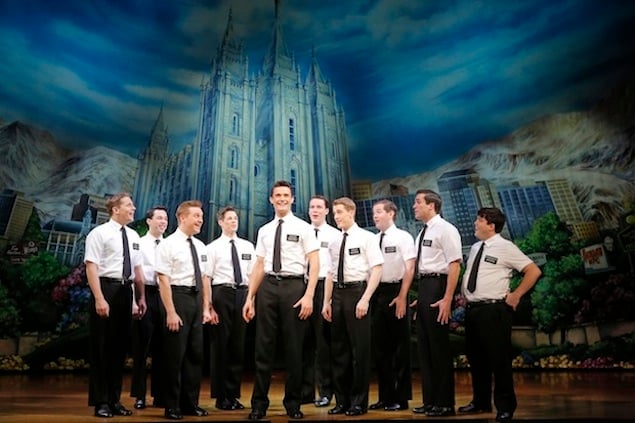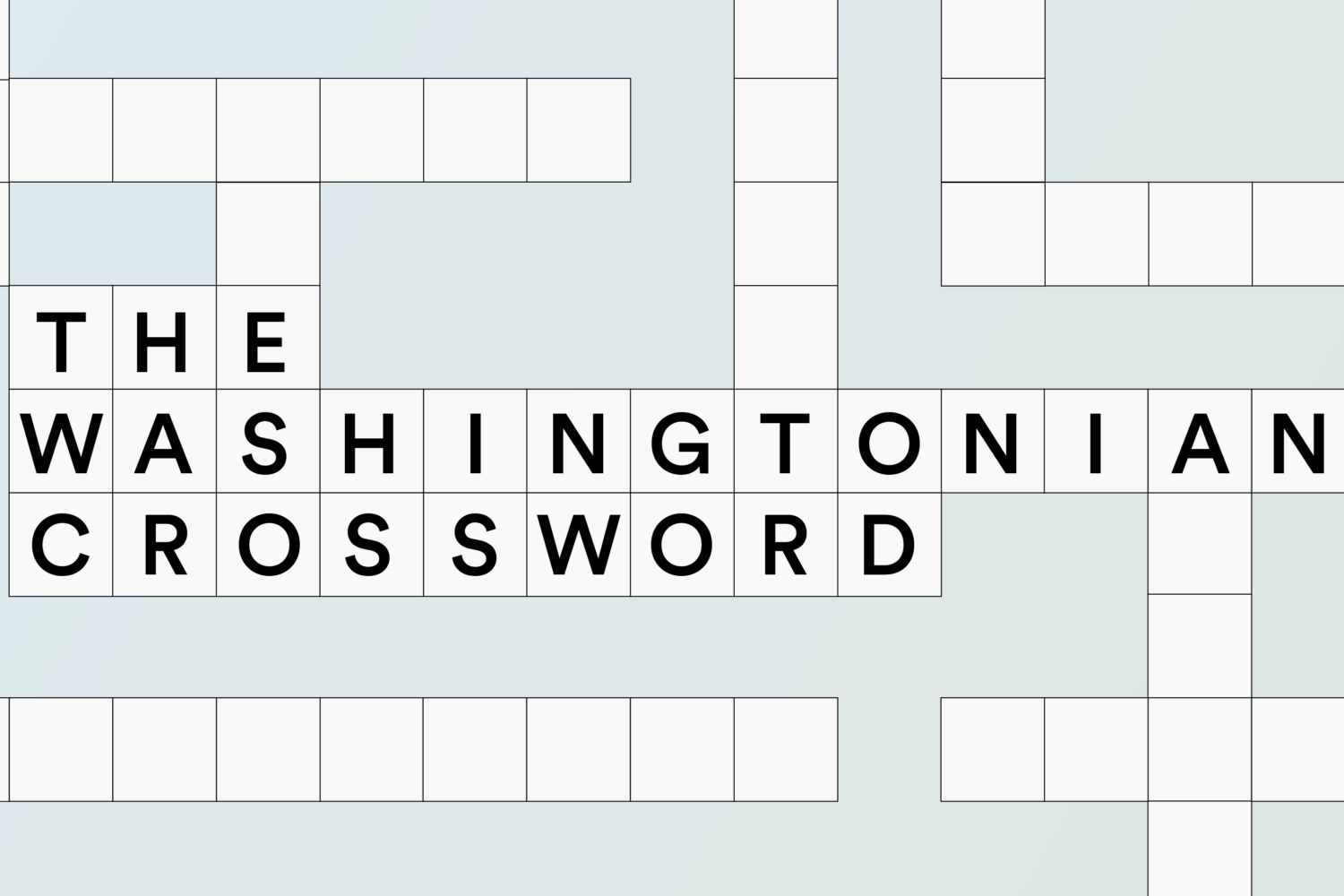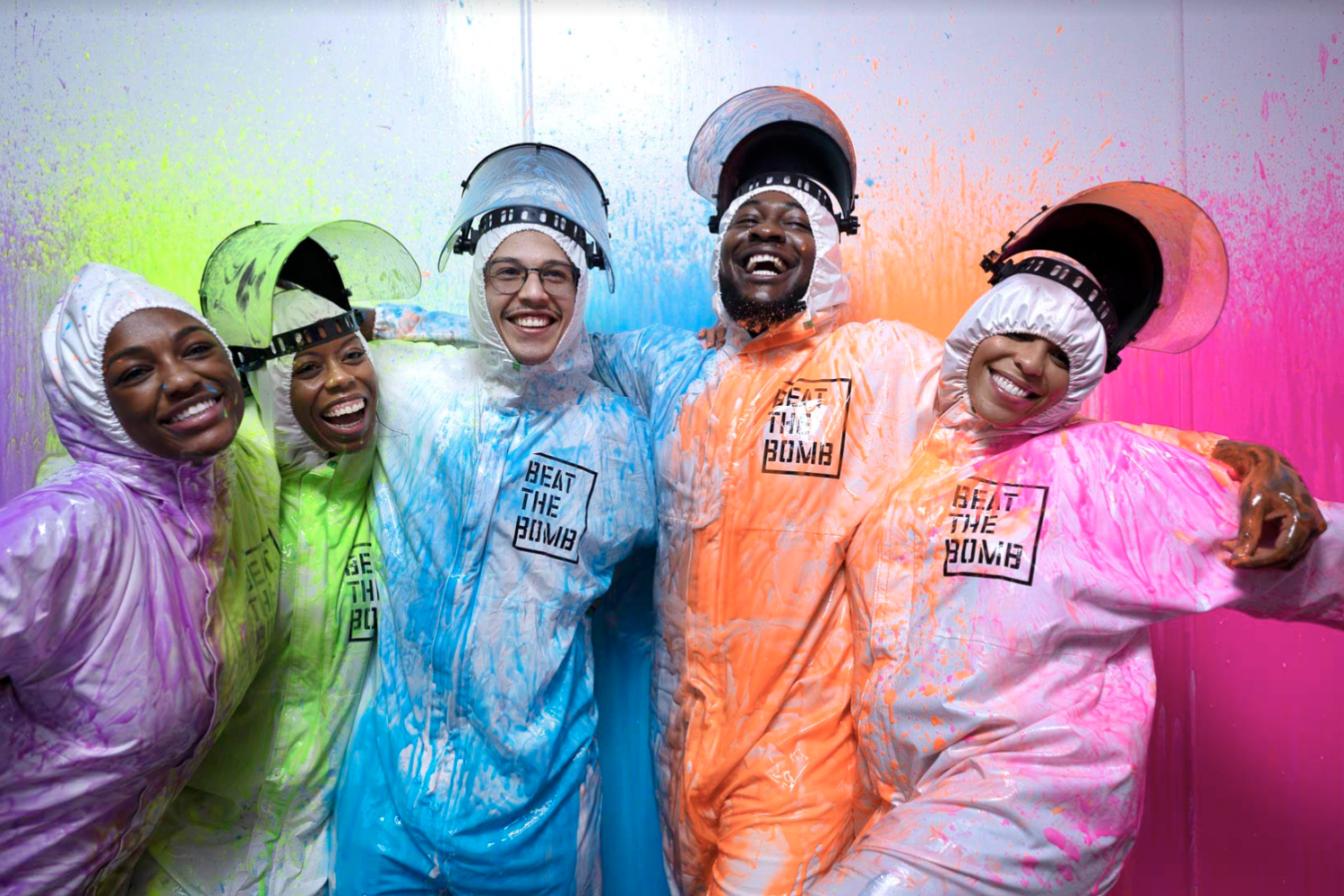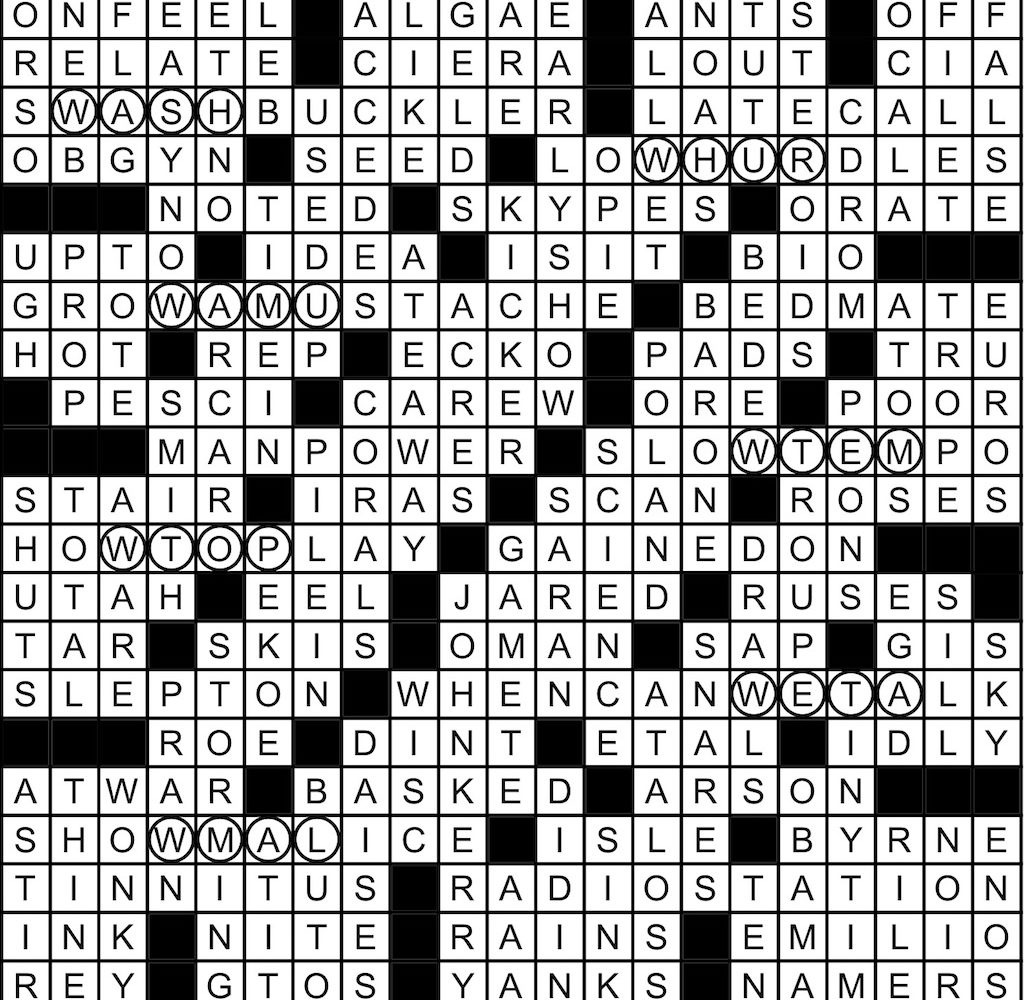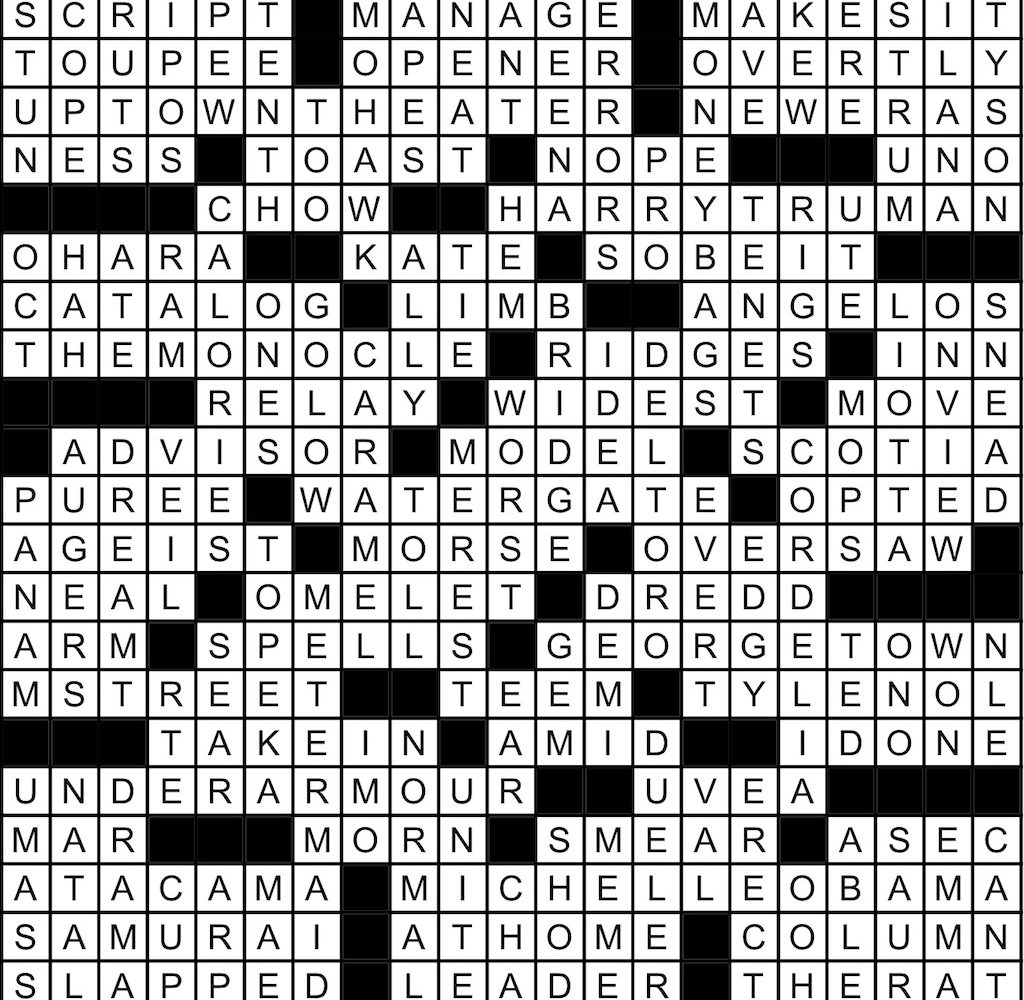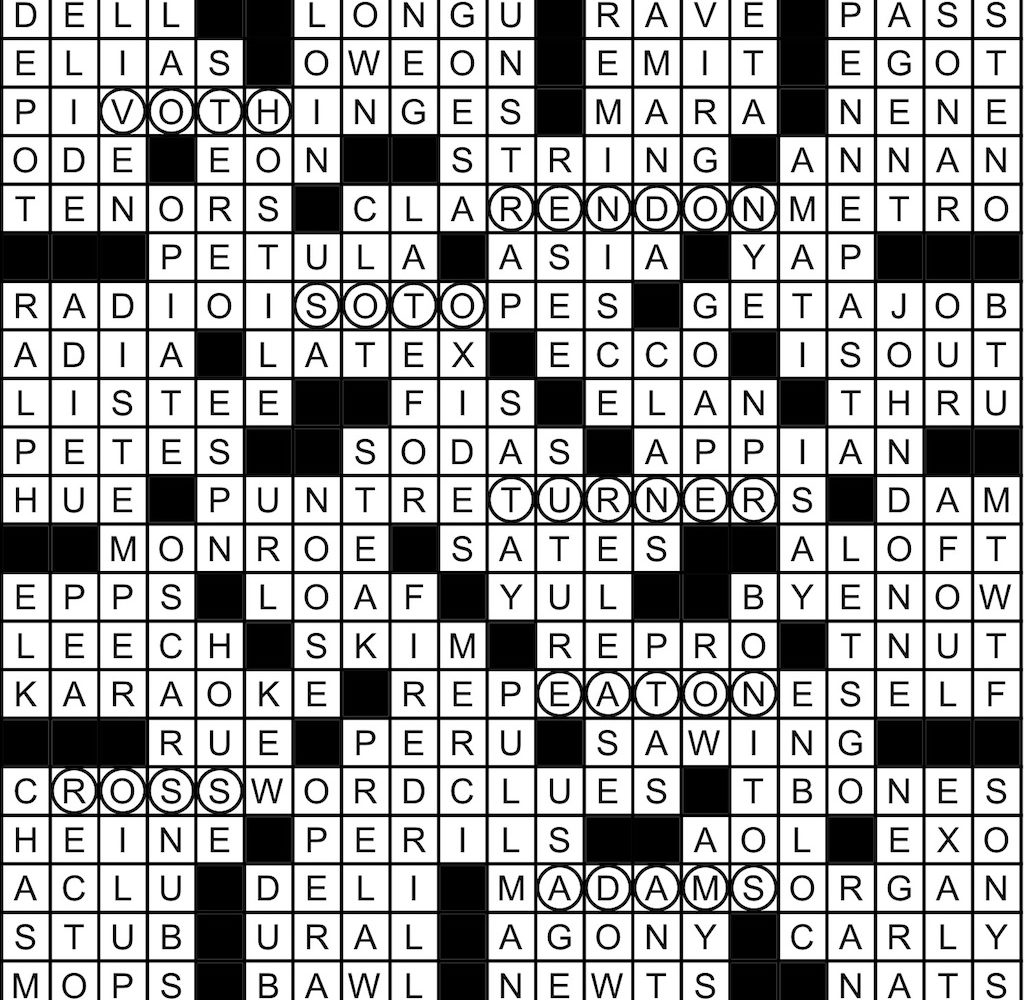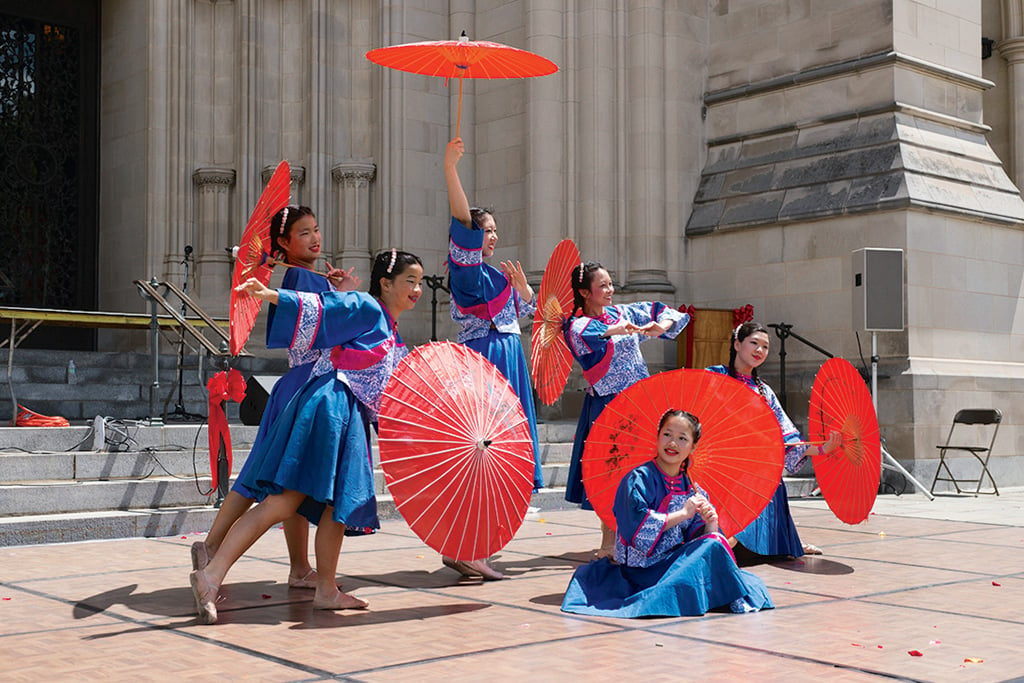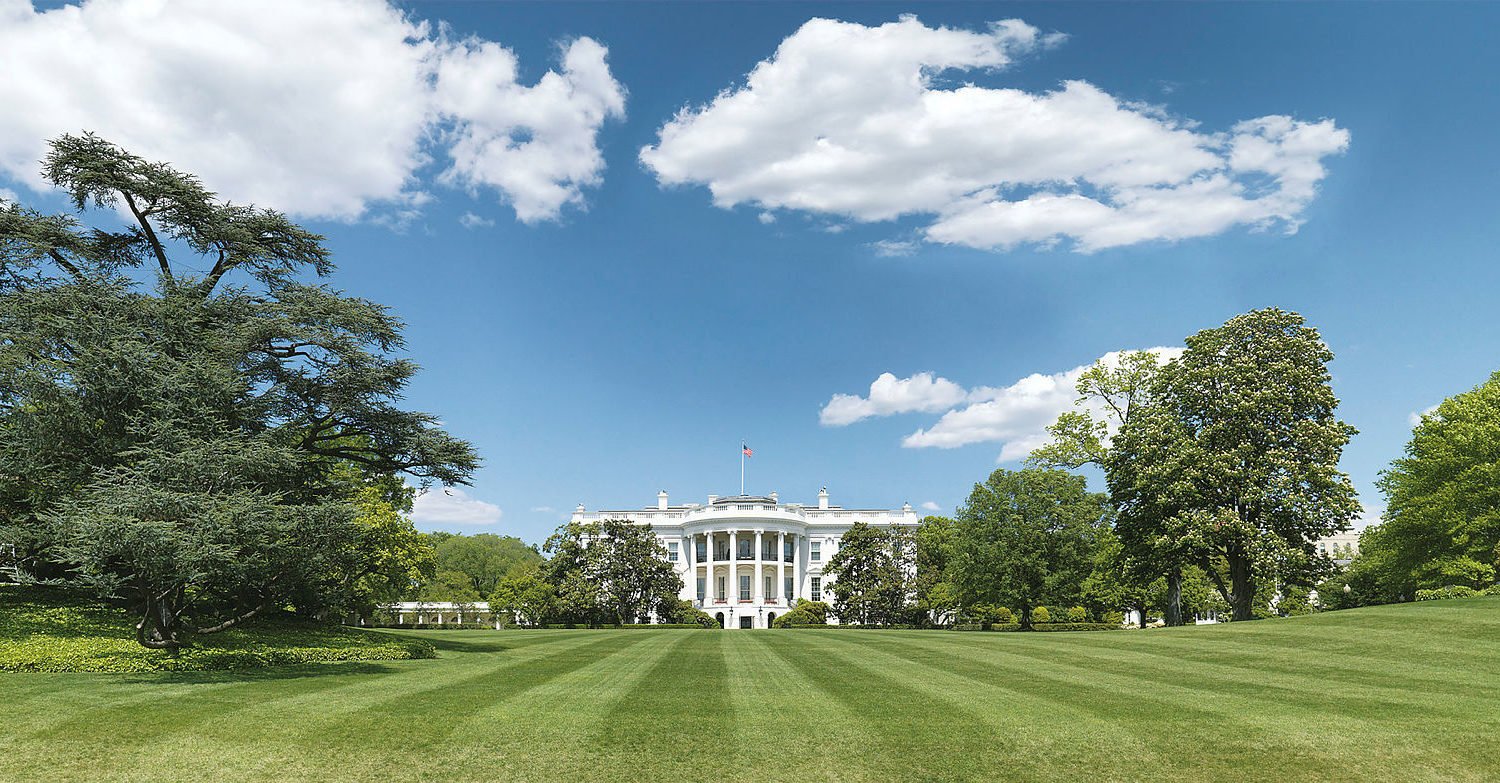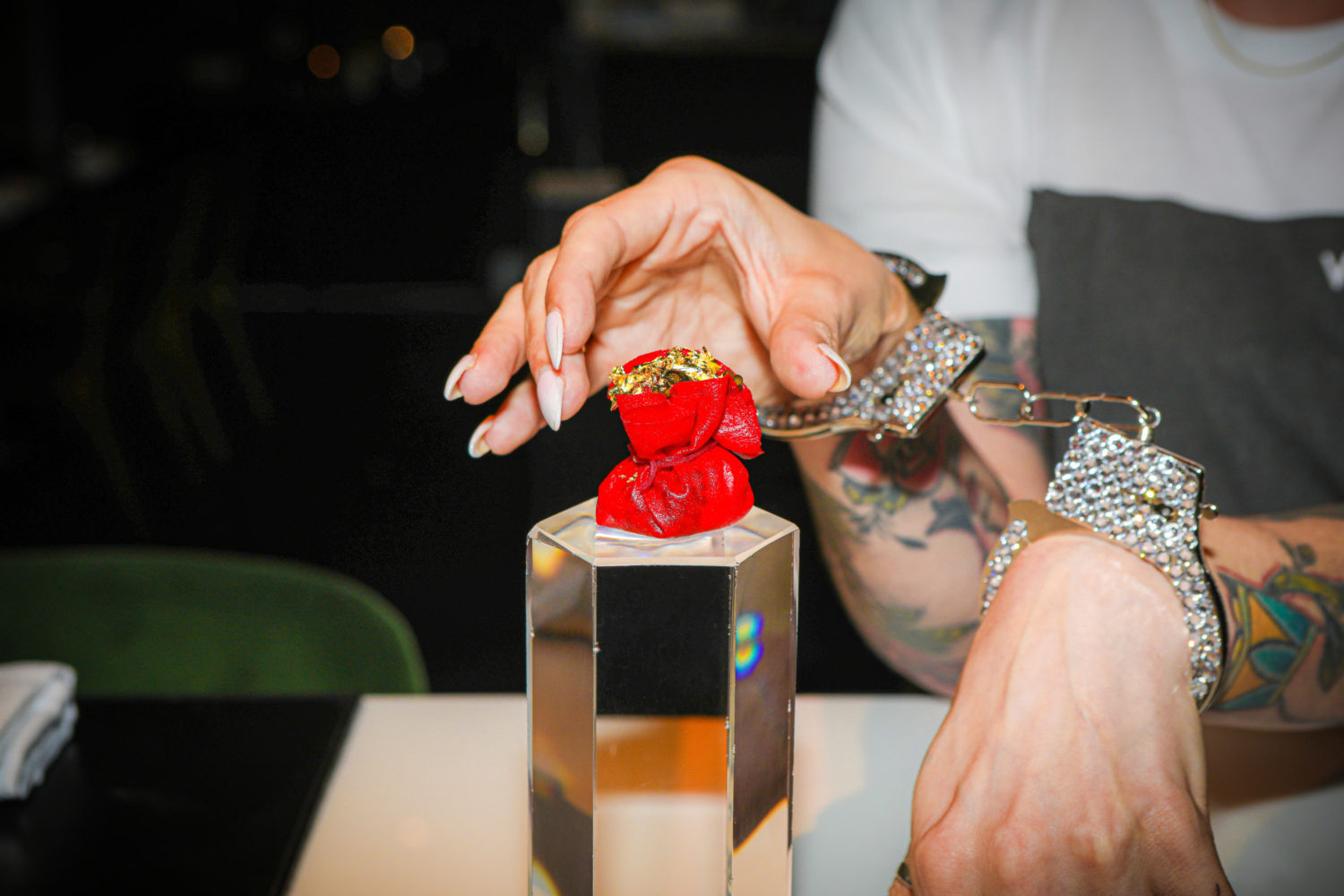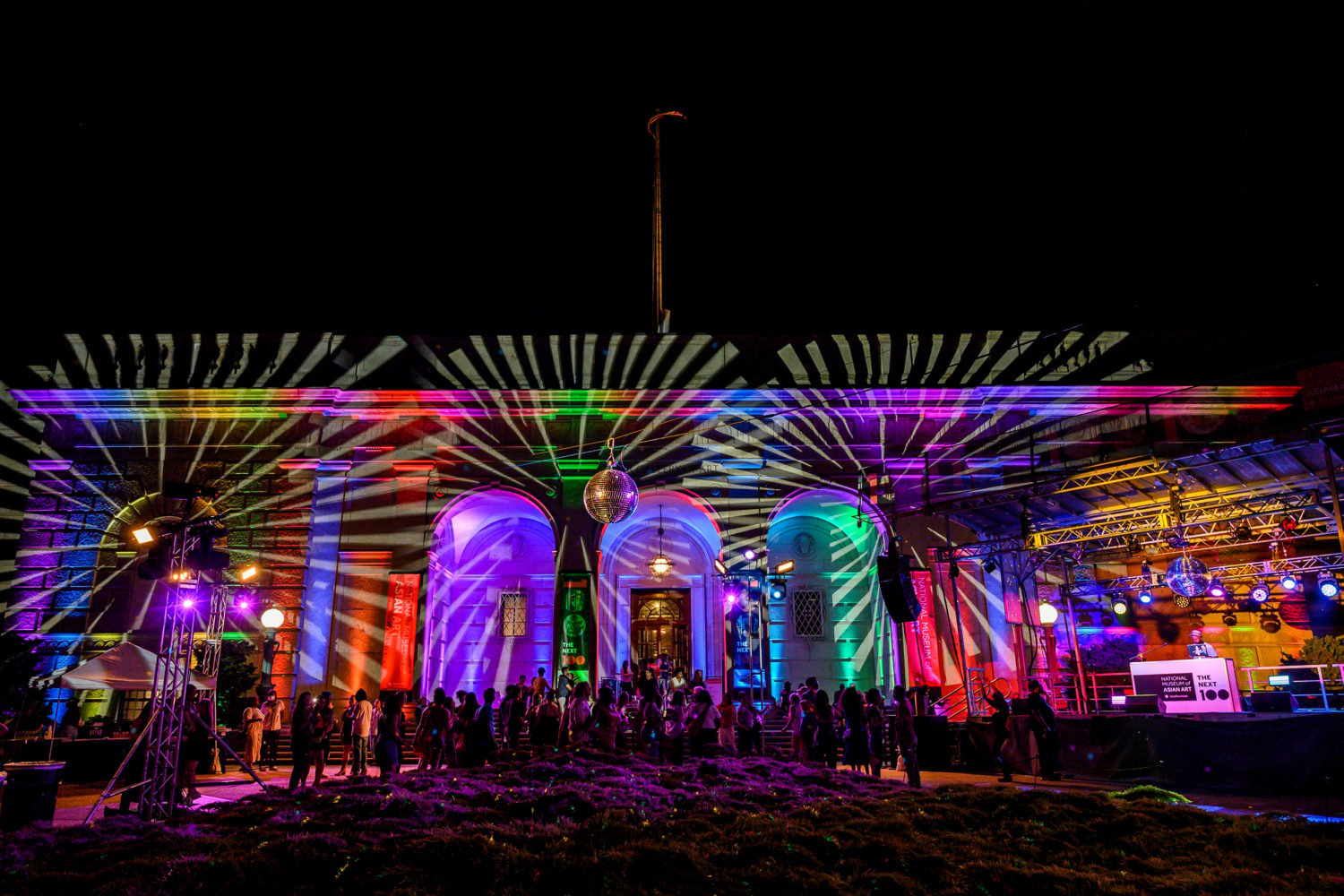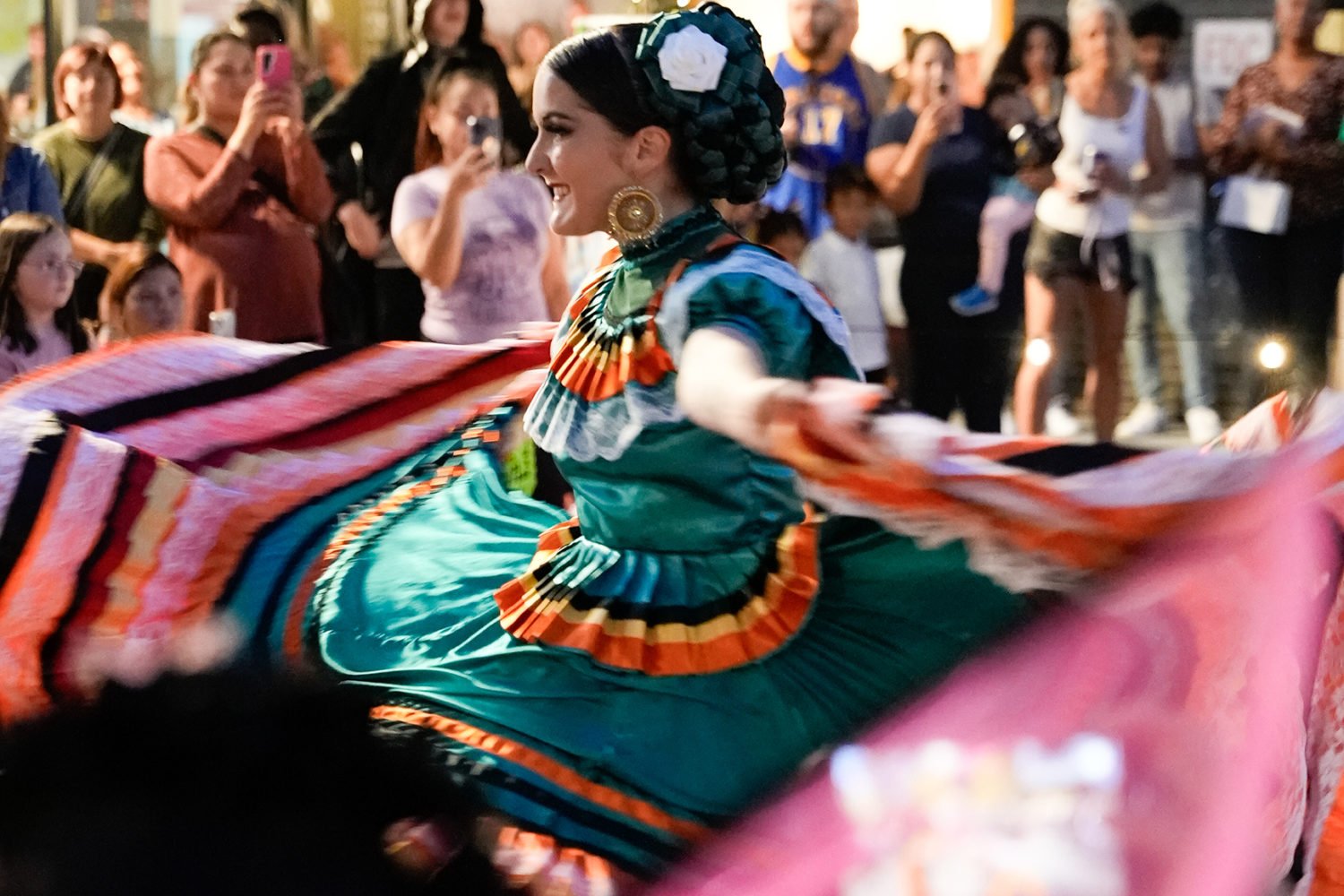
Trey Parker and
Matt Stone seem to be mellowing with age, which is not something you could say about many artists
whose recent work contains the lyrics “F*ck you, God, in the *ss, muthac*nta.” Still,
The Book of Mormon, the Tony-sweeping, record-smashing, universally adored musical from the creative
forces behind
South Park, has a nostalgic, almost Disney-like charm compared with the rest of their oeuvre.
(Google “Virgin Mary South Park” and you’ll see what I mean.)
Whether
The Book of Mormon—playing at the Kennedy Center through August 18—is a sign of Parker and Stone maturing
or of the pair attempting to create something broadly palatable to middle America
is hard to discern, but despite its repeated jokes about AIDS, infant rape, female
circumcision, and homophobia, the show has a sweetness about it that makes it an unlikely
paean to the format of musical theater. Mormons have always gotten off relatively
lightly in Stone/Parker-land—compared with, say, Scientologists—and the defining message
of
The Book of Mormon seems to be similarly rosy. Who cares what crazy stories people believe in if they’re
ultimately trying to make the world a better place?
If you’re a gay Californian whose marriage was delegitimized by the passing of Prop
8 (which the Church of Jesus Christ of Latter-Day Saints was fundamental in fundraising
and campaigning for), you might have a different opinion, but that’s beside the point.
The two heroes of
The Book of Mormon are a swarthy, narcissistically all-American missionary named Elder Price (Mark Evans), whose zeal has more than a shade of Johnny Bravo to it, and Price’s assigned partner,
Elder Cunningham (Christopher John O’Neill), who’s as nerdy, messy, and awkward as Price is clean-cut and handsome. In terms
of format, it’s as rote as comedic pairings come.
Despite Price believing God will reward his faith by sending him to that sunny paradise
on Earth, Orlando, he and Cunningham are instead shipped off to Uganda, where animal
carcasses rot on the streets, almost everyone has AIDS, and an evil warlord (Derrick Williams) is intent on circumcising every woman in the village. The missionaries who welcome
them have had little success with converting the villagers, but they have developed
an effective way to combat doubt and self-awareness, detailed in the cheery, chirpy
number “Turn It Off.” Childhood pain? Turn it off. Unexpressed grief for a dead sibling?
Never happened. Less-than-wholesome thoughts about a handsome friend named Steve?
Easily stifled by prayer and positive thinking.
Evans’s Price is effortlessly charismatic, and so sunny in his naive egotism that
it’s hard to dislike him. In the show’s third number, “You and Me (But Mostly Me),”
he and Cunningham spell out the terms of their relationship, which features Price
as the star and Cunningham as the bumbling sidekick who tries as hard as he can not
to get in the way. But when the two are transported to Africa, where the local way
of dealing with hardship is cursing God in an extremely funny ripoff of “Hakuna Matata,”
it’s Cunningham who finally finds a way to connect with his new community.
The Book of Mormon is the collaborative effort of Parker, Stone, and
Robert Lopez, best-known as the co-creator of
Avenue Q. Strike me down for saying so, but it’s hard not to wish Parker and Stone had paired
with
Marc Shaiman instead, whose work on
South Park: Bigger, Longer & Uncut scored an Oscar nomination. I’d posit that there isn’t a single song in
The Book of Mormon as catchy as “Blame Canada” or “What Would Brian Boitano Do,” or even “Uncle F*cka”
(if you disagree, please specify which one you left the auditorium humming). “Hasa
Diga Eebowai” is infectious but has a steel drum riff that’s copied almost directly
from Disney, and there are a number of songs (“All American Prophet,” “I Believe,”
“I Am Here For You”) that are yawningly forgettable.
What
The Book of Mormon benefits hugely from is
Scott Pask’s sets, particularly in the number “Spooky Mormon Hell Dream,” (which borrows generously
from the scene in
South Park the movie when Kenny descends into hell and encounters Hitler, George Burns, and,
weirdly, Gandhi). Mormon hell is a red, gaping chasm of awfulness populated by Hitler,
Genghis Khan, Jeffrey Dahmer, and Johnnie Cochran. Salt Lake City is a lovely painted
backdrop of a shining church on a hill surrounded by strip malls and fast food outlets.
Uganda, meanwhile, seems to be constructed entirely from gray bones and trash, although
the flashing stained-glass proscenium arch above the stage that blinks throughout
the musical numbers is a nicely Vegas-esque reference to megachurches.
There are plenty of belly laughs, particularly when Cunningham reinterprets the stories
in the Book of Mormon to make them more interesting to a contemporary audience. But
there are also gags staler than last week’s bagels, like the running joke in which
Cunningham gets the gorgeous Nabalungi’s (Samantha Marie Ware) name wrong, referring to her variously as “Neosporin,” “Neutrogena,” and “Nicoderm
CQ.” Ware performs her big numbers with flair and a golden set of lungs, but even
she, rhapsodizing over an imagined Utah-based paradise in “Sal Tlay Ka Siti,” can’t
make the line “where flies don’t bite your eyeballs and human life has worth,” sound
anything less than hoary.
As Cunningham, O’Neill is gregarious and funny, particularly in his physicality (he’s
rotund and diminutive but a very enthusiastic dancer, and his repeated attempts to
hug Elder Price are sheer slapstick). He can go a touch off-key, however, particularly
in “Baptize Me,” in which he and Nabalungi perform a conversion-based seduction dance
that’s roughly equivalent to “Let’s Get It On.” It’s the kind of gentle blasphemy
The Book of Mormon excels at—offensive enough to thrill Broadway’s common denominator but not really
any rougher than a good old-fashioned knock-knock joke. (“Who’s there?” “Joseph Smith
with an unfortunate case of dysentery.”)
The show’s real message—that religion is meant to be allegorical, and we’re idiots
for thinking otherwise—is so subtle that it almost gets lost among the jubilation
of hobbits and Brigham Youngs and Yodas dancing gleefully together onstage. But maybe
that’s just the Great White Way.
The Book of Mormon
is at the Kennedy Center through August 18. Running time is about two and a half hours,
including one intermission. A few tickets (prices vary) are still available via the
Kennedy Center’s website.

